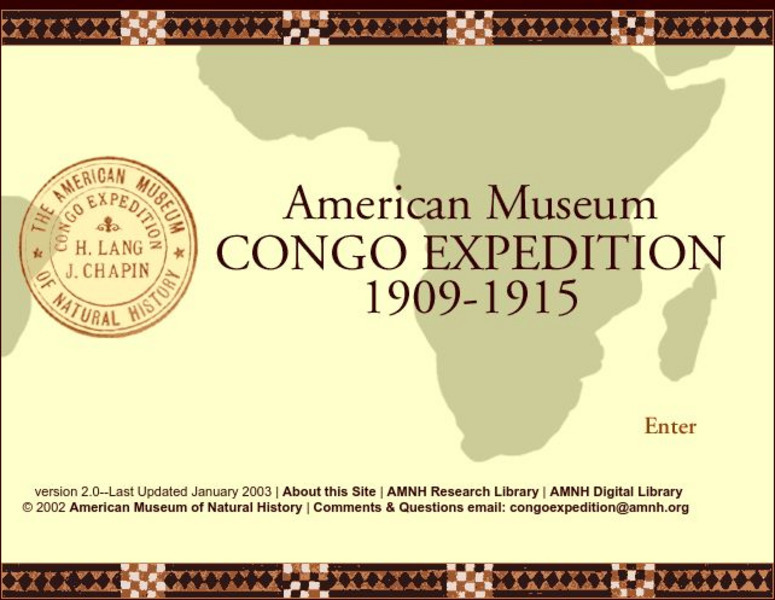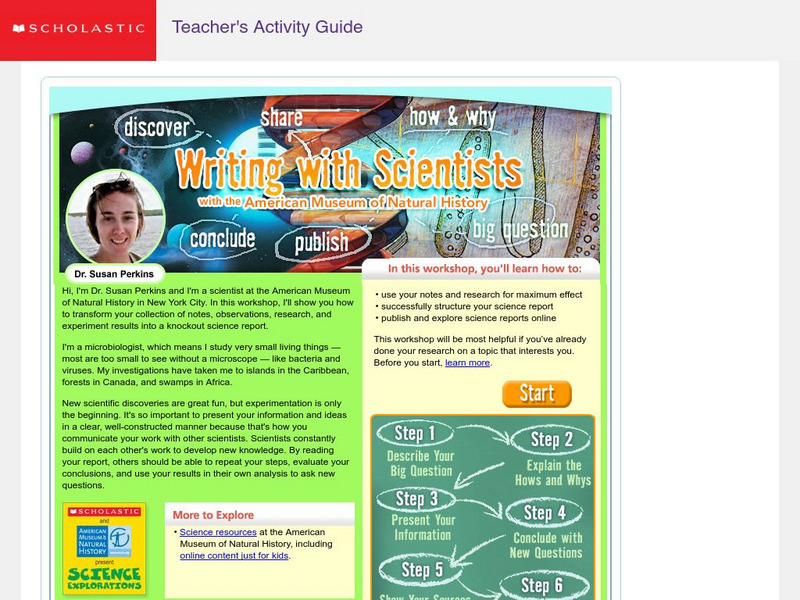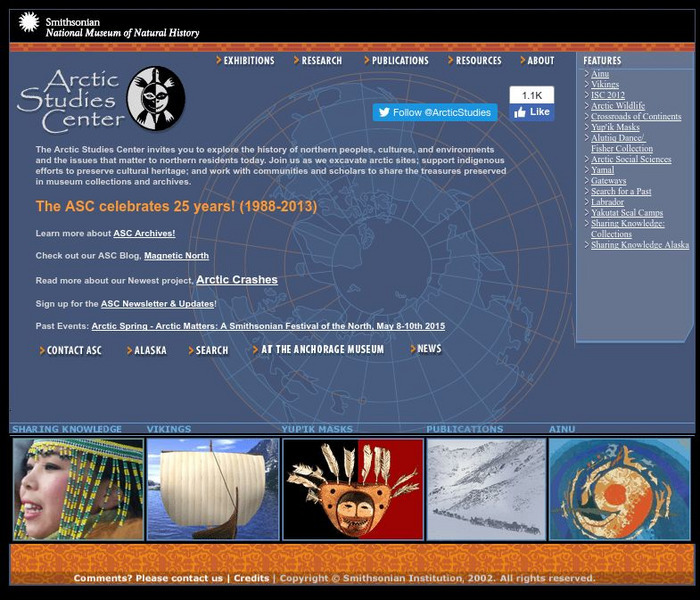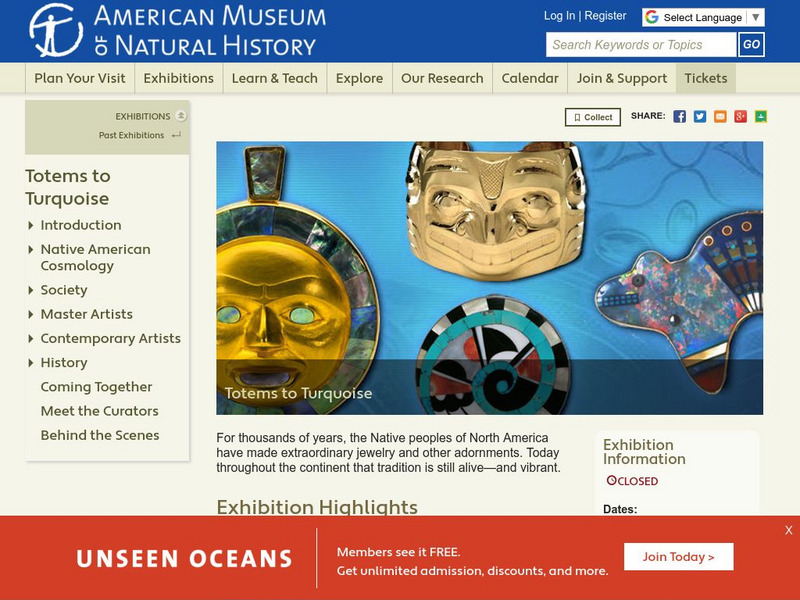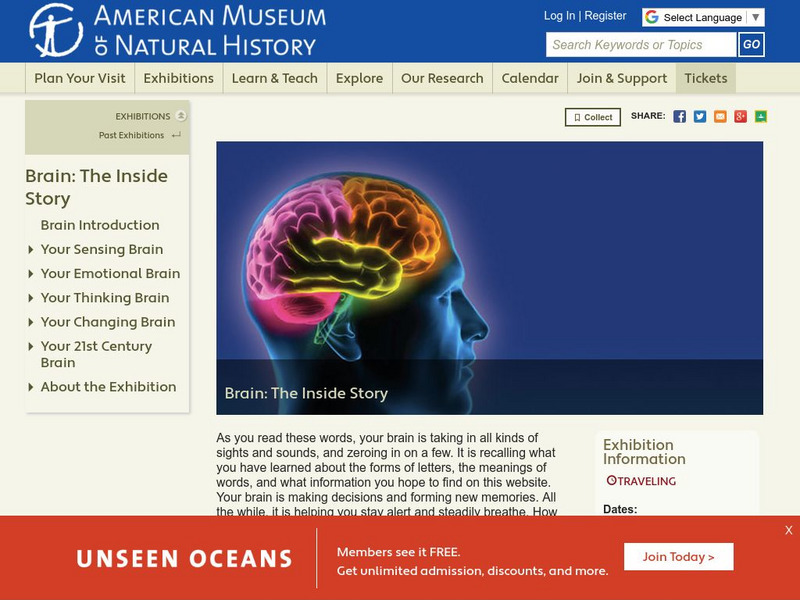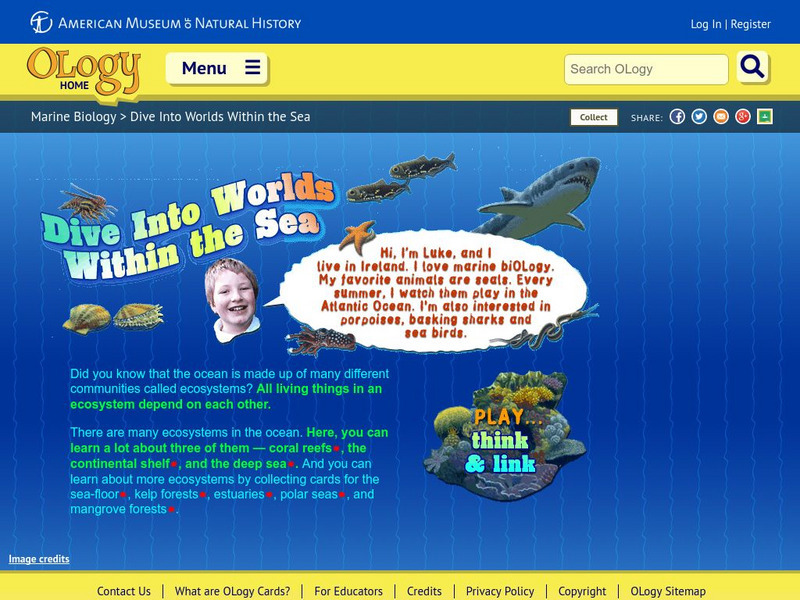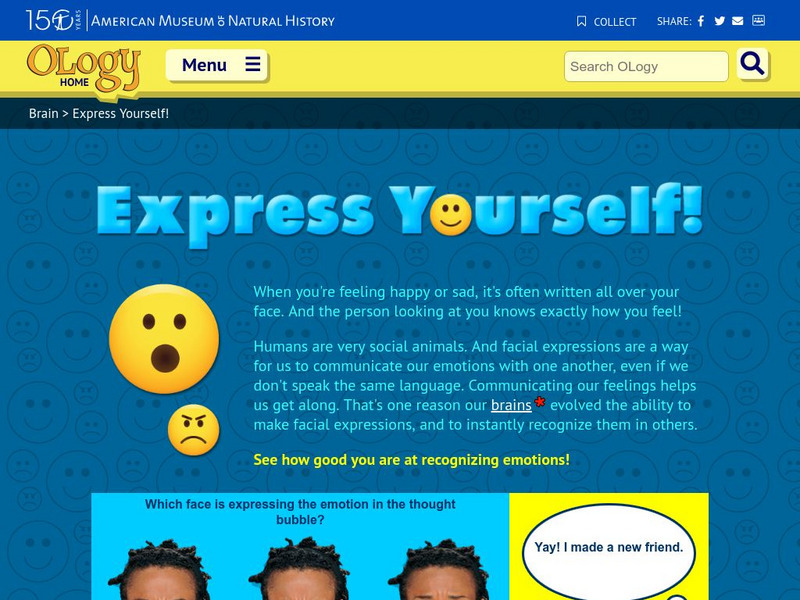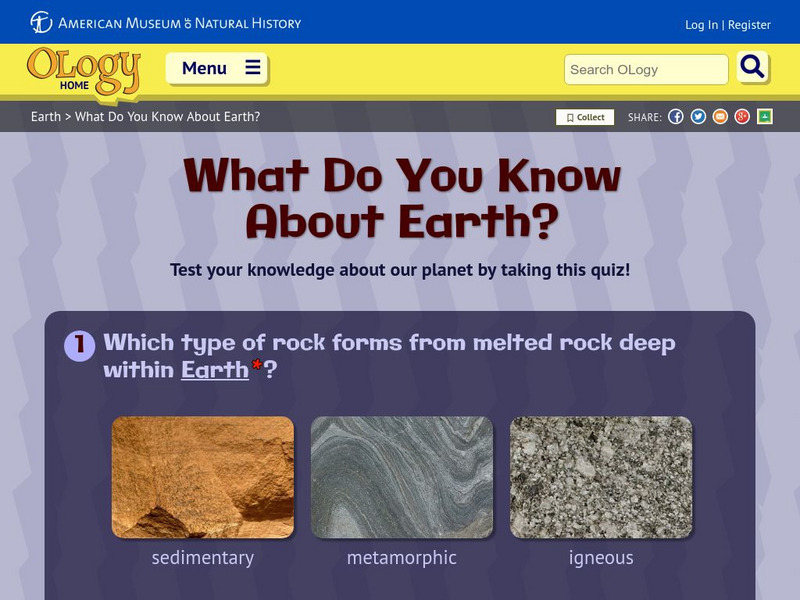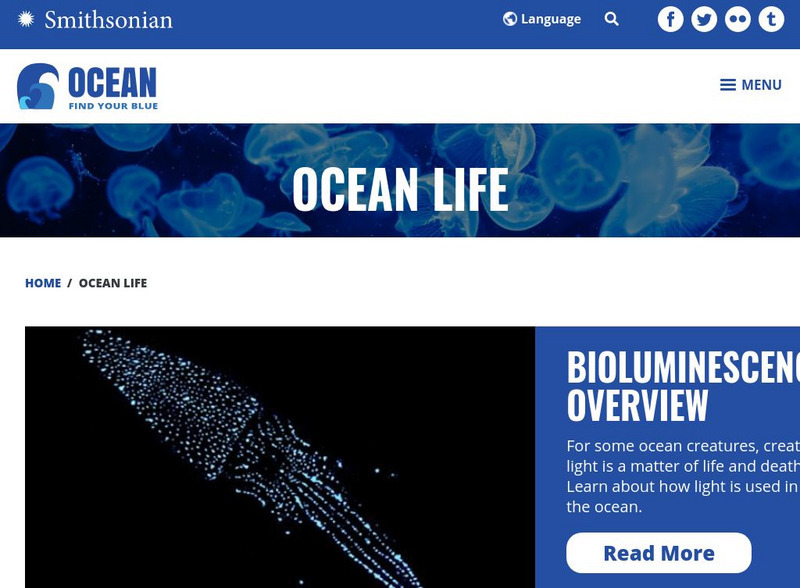Hi, what do you want to do?
American Museum of Natural History
American Museum of Natural History: Digital Library: Congo Expedition: 1909 15
A rich-media website that traces a major expedition into the Belgian Congo (the present-day Democratic Republic of the Congo) at the dawn of the twentieth century. Includes maps, diary entries, specimens, and recordings as well as a...
American Museum of Natural History
American Museum of Natural History: Oology: Expeditions
This student module includes short, informational text, images, interactive games, and quizzes about ocean exploration.
American Museum of Natural History
American Museum of Natural History: O Logy: Welcome to the Dzanga Sangha
Explore the Dzanga Sangha rain forest, located in the Central African Republic. Learn what researchers who have traveled there have to say about the habitat. Also play a connect-the-dots game that lets players see how different organisms...
Scholastic
Scholastic: Writing With Scientists With the American Museum of Natural History
Follow this six-step method and you'll have a good understanding of what a good scientific research paper involves and how it is organized. There are plenty of samples for you to look at. This explanation is also very helpful for...
University of Oxford (UK)
Oxford University Museum of Natural History: Seven Life Processes
Explore the seven life processes that describe whether an animal is alive or not. Each characteristic is defined with examples and pictures. Also included is a living animal quiz to test how much you have learned.
American Museum of Natural History
American Museum of Natural History: Ology: See the Light
Reflection, refraction, and the colors that make up white light is explored through lab activities after reading a brief background about light energy.
American Museum of Natural History
American Museum of Natural History: O Logy: Journey to Deep Sea Vents
Take a submersible down to the seafloor. As you descend, passing through the ocean's sunlight, twilight, and midnight zones, you can observe how temperature, pressure, and light levels change. When your submersible reaches the seafloor,...
American Museum of Natural History
American Museum of Natural History: Plates on the Move
Explore how plates move with this interactive site. Students choose locations on the map of Earth to see if the tectonics plate are slipping, spreading, colliding, or subducting.
Smithsonian Institution
National Museum of Natural History: Arctic Studies Center
Tour this Smithsonian site and learn about the cultures of the North Pacific Rim and arctic wildlife in this site. This site provides virtual tours, videos, and music!
Smithsonian Institution
National Museum of Natural History: Looking Both Ways
This is an interactive exhibit from the Smithsonian Arctic Studies Center featuring the Alaskan Native Alutiiqs. Learn much information about the people, their culture, and see where they live.
American Museum of Natural History
American Museum of Natural History: Welcome to Dzanga Sangha
Connect the dots to investigate three different habitats either the forest, bai or river of the rain forest. By connecting the dots students make a food chain to see how organisms in each habitat depend on each other.
American Museum of Natural History
American Museum of Natural History: Find a Vent
Learn all about hydrothermal vents deep in the ocean and how scientists locate them. Then take a virtual expedition to the Juan de Fuca Ridge in the north Pacific and see if you can discover a new deep sea vent.
American Museum of Natural History
American Museum of Natural History: Totems to Turquoise: Native American Jewelry
Through this resource, the user can learn about the hand-crafted jewelry of Native North Americans of the Northwest and Southwest and how it embodies both the personal and collective identity of the maker and the wearer.
American Museum of Natural History
American Museum of Natural History: O Logy: Marine Biology: The Living Oceans
This resource is a place for exploring, asking questions, finding information, meeting scientists, and learning about marine ecosystems.
American Museum of Natural History
American Museum of Natural History: Race to the End of the Earth
Multimedia-rich exhibition documents the race, in 1911, to be the first to reach the South Pole. Two teams undertook the perilous journey, one British, led by Robert Scott, and one Norwegian, led by Roald Amundsen. With digital dioramas,...
American Museum of Natural History
American Museum of Natural History: Brain: The Inside Story
This exhibition documents how our brains sense, think, process emotions, and grow and change.
American Museum of Natural History
American Museum of Natural History: Dive Into Worlds Within the Sea
Think and Link to investigate three different ecosystem either the deep sea, coral reef or continental shelf. By connecting the dots students make a food chain to see how organisms in each habitat depend on each other.
American Museum of Natural History
American Museum of Natural History: Ology: Express Yourself
Test your skill at reading the emotion expressed in a face in these two matching games.
American Museum of Natural History
American Museum of Natural History: Ology: Paleontology: The Big Dig
A collection of online games, virtual puzzles, experiments, and interviews with experts to immerse students into the world of paleontology.
American Museum of Natural History
American Museum of Natural History: Paleont O Logy: The Big Dig
This colorful and inviting resource houses tons of paleontology activities to explore. Play the Layers of Time puzzle game, create your own make-believe dig site by burying chicken bones in plaster of Paris, learn how to draw dinosaurs,...
American Museum of Natural History
American Museum of Natural History: O Logy: What Do You Know? Earth Science
Take a ten question quiz on the Earth's surface.
Other
Santa Barbara Museum of Natural History: The Chumash People of California
A thorough look at the Chumash people of California. Read about their unique plank canoes, basketry, language, and cave paintings. Many pictures of artifacts and drawings accompany the information.
Smithsonian Institution
National Museum of Natural History: Ocean Portal, You Navigate
Delight in the fresh colors, sights, and sounds on this dynamic site on the ocean. Major categories consist of Ocean Life & Ecosystems, The Ocean Over Time, Ocean Science, and The Ocean and You. New information on sharks, a slideshow...
Smithsonian Institution
National Museum of Natural History: Ocean Portal: Ocean Life & Ecosystems
From the tiny to the titanic, from the familiar to the undiscovered, the ocean offers a stunning diversity of marine life and nearly every kind of habitat imaginable. Dive in and explore them here. Links incude stories, videos and photos...





